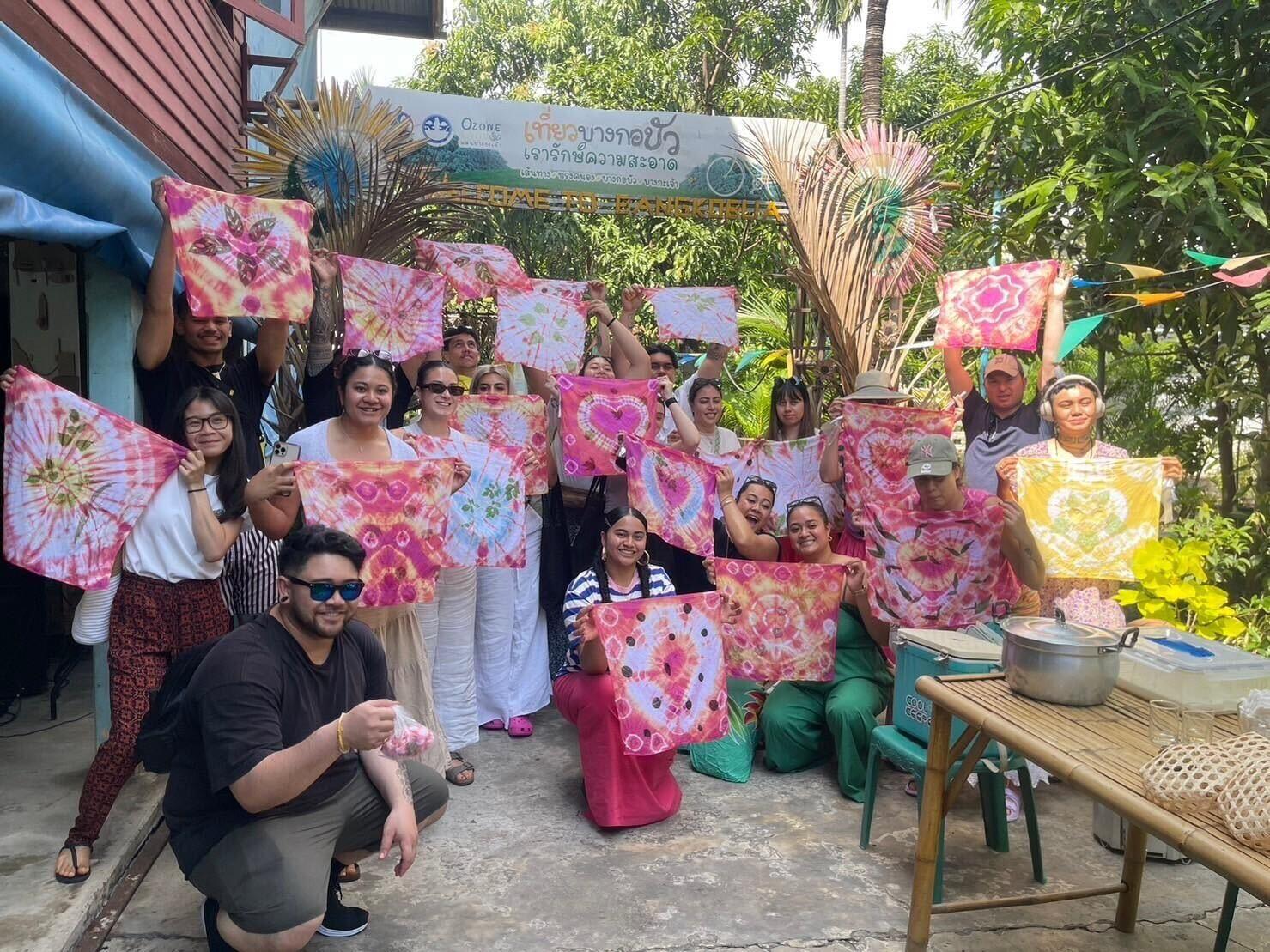Many study abroad offices and university faculty ask us why service-learning cannot be condensed into just a few hours. At CIS Abroad, our service-learning programs are dedicated to sustainability, making impactful contributions to Thai society, and providing meaningful experiences for students.
Service-learning is an educational method that combines academic objectives with community service, fostering both learning and personal development. When partnering with local organizations for service-learning, we must ensure that each site visit and activity contributes positively to our partners.
Why Longer Engagements Matter
Short, one-off visits often fall short of delivering true impact. Engaging in service-learning for only half a day or a few hours does not allow students to:
- Develop Meaningful Connections. Building trust and understanding with local communities requires time.
- Contribute Effectively. Short visits limit the ability to make a significant impact or understand the complexities of local issues.
- Reflect Deeply. Adequate time is needed for students to reflect on their experiences and learn from them.
That's why we prioritize quality over quantity. Our programs ensure in-depth engagements that align with educational goals and respect host communities.
Our Commitment to Sustainable Partnerships
We carefully select local partners who not only support academic objectives but also allow students to make a real difference in Thai society. Our partnerships are built on:
- Long-Term Impact: We collaborate with organizations that create lasting change and address genuine community needs.
- Ethical Engagement: We avoid practices that could exploit or burden our partners, always aligning with sustainable development goals.
- Cultural Sensitivity: Honoring local traditions and norms is central to all our interactions.
- Capacity Building: Our focus is on empowering locals, fostering independence rather than dependency.
When collaborating with host organizations, we need to ensure our visits are not a burden on local resources. We achieve this by:
- Effective Communication. Regular dialogue with partners to understand their needs and capacities.
- Donations and Honorariums. These are provided to the organization to use as they need. This ensures we are not using limited local resources for our visit and helps to provide additional sustainability for host organizations.
- Resource Optimization. Leveraging student skills and knowledge to benefit the community effectively.
Moreover, we take into account student involvement and expectations:
- Active Engagement. Students are expected to participate fully and respectfully in all activities, understanding their role may be to observe and learn more often than applying their skills, especially at earlier stages of the experience.
- Learning Mindset. Emphasizing humility and openness to learn from the community.
- Reflective Practice. Encouraging ongoing reflection to deepen understanding and personal growth. This is a crucial aspect of our programs. Without reflection and review of activities, we risk failing to meet academic goals. Service learning requires reflection and review. For many students their first experience will be a ‘failure'. They have good intentions, but limited knowledge and experience. This is a critical part of the learning process and is a key point for on-site staff and faculty to work with students to reflect, learn from their experience, and adjust.
Case Study:
University of California, Davis - Intern in Chiang Mai
A useful model of our service-learning approach is our Teaching in Thailand program with UC Davis, a full five-week English teaching placement at a local school. This program embodies extended engagement, with students committing to longer periods to ensure deeper involvement. Participants apply specialized skills to meet specific community needs, and the program supports sustainable outcomes, contributing to lasting improvements in local education services.
Rachel Lee, a summer 2024 UC Riverside student shares her internship experience:
Itinerary
- Days 1-2: Group arrival, health & safety orientation, and Thai cultural values and language training.
- Day 3: Initial day of project work, followed by reflection session.
- Days 4-34: Project work, Local Life activities and excursions, and continued reflection sessions.
- Day 35: Farewell, Thailand!
Upon returning home, students will have experienced profound cultural immersion, navigated personal growth through challenges, and fostered collaborative partnerships with local stakeholders.
About the Author
David Jackson, Site Director - Thailand
 David was born in the UK and moved to the US when he was 16 and completed high school and university in Colorado. As an avid traveler, his first thought on graduation was to travel to Asia. He volunteered and lived with a family in Kathmandu for 2 months before traveling to Thailand. He quickly fell in love with the country and for the last 22 years has worked as a teacher, as a volunteer fundraising office and development officer in NGOs, and has worked with volunteers and study abroad programs for the last eleven years. He has an MA in Asia Pacific Studies as well as an MBA, and is fluent in Thai. He loves working in international education as it allows him to support sustainable development and intercultural dialogue and education.
David was born in the UK and moved to the US when he was 16 and completed high school and university in Colorado. As an avid traveler, his first thought on graduation was to travel to Asia. He volunteered and lived with a family in Kathmandu for 2 months before traveling to Thailand. He quickly fell in love with the country and for the last 22 years has worked as a teacher, as a volunteer fundraising office and development officer in NGOs, and has worked with volunteers and study abroad programs for the last eleven years. He has an MA in Asia Pacific Studies as well as an MBA, and is fluent in Thai. He loves working in international education as it allows him to support sustainable development and intercultural dialogue and education.
Additional Resources
Webinar: Teach Human Rights Abroad: Case study of a faculty-taught course in Thailand


